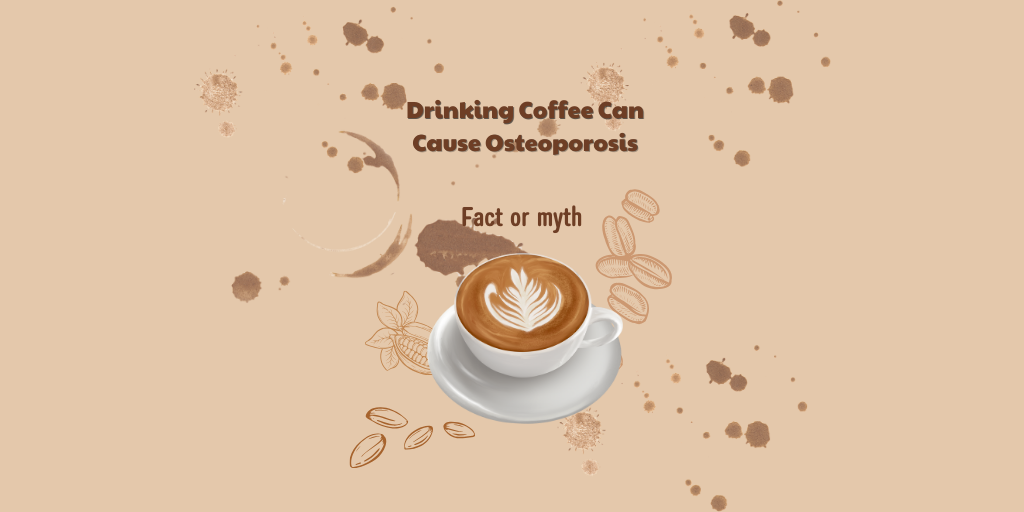
Coffee contains caffeine, which has mild diuretic properties and can increase calcium excretion through urine and feces. Caffeine can also inhibit calcium absorption in the intestines, although this effect is not significant if calcium intake is sufficient.
Some studies mention that every 100 mg of caffeine (about 1 cup of coffee) can increase calcium excretion by about 5-6 mg. However, this is a very small amount compared to the recommended daily calcium intake (around 1000 mg per day for adults).
➡ No, not directly. Osteoporosis occurs when bone mineral density decreases, making the bones brittle and prone to fractures. The main factors contributing to osteoporosis include:
If someone drinks coffee in moderation (< 3 cups per day) and ensures adequate calcium and vitamin D intake, then coffee will not cause osteoporosis.
Several studies have examined the relationship between coffee and bone density:
If you enjoy drinking coffee, here are some tips to help maintain bone health:
✅ Ensure adequate calcium from milk, yogurt, cheese, or plant-based sources like broccoli and almonds.
✅ Consume vitamin D from sunlight or supplements if needed.
✅ Limit excessive coffee intake (max 3 cups per day).
✅ Avoid smoking and alcohol, as both are more harmful to bone health than coffee.
✅ Engage in weight-bearing exercises like weightlifting, jogging, or yoga to improve bone density.
➡ Drinking coffee in moderation does not cause osteoporosis, especially if calcium and vitamin D intake is adequate.
➡ Excessive consumption (>4 cups per day) may contribute to increased calcium excretion, but the effect is still small compared to other risk factors.
➡ Postmenopausal women need to be more cautious, but they can still enjoy coffee with a balanced diet.
So, if you love coffee, don't worry too much. The key is to maintain a healthy diet and lifestyle! ☕💪
